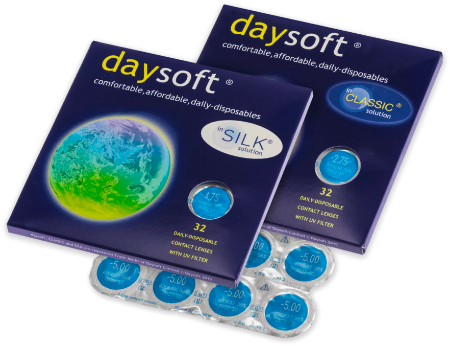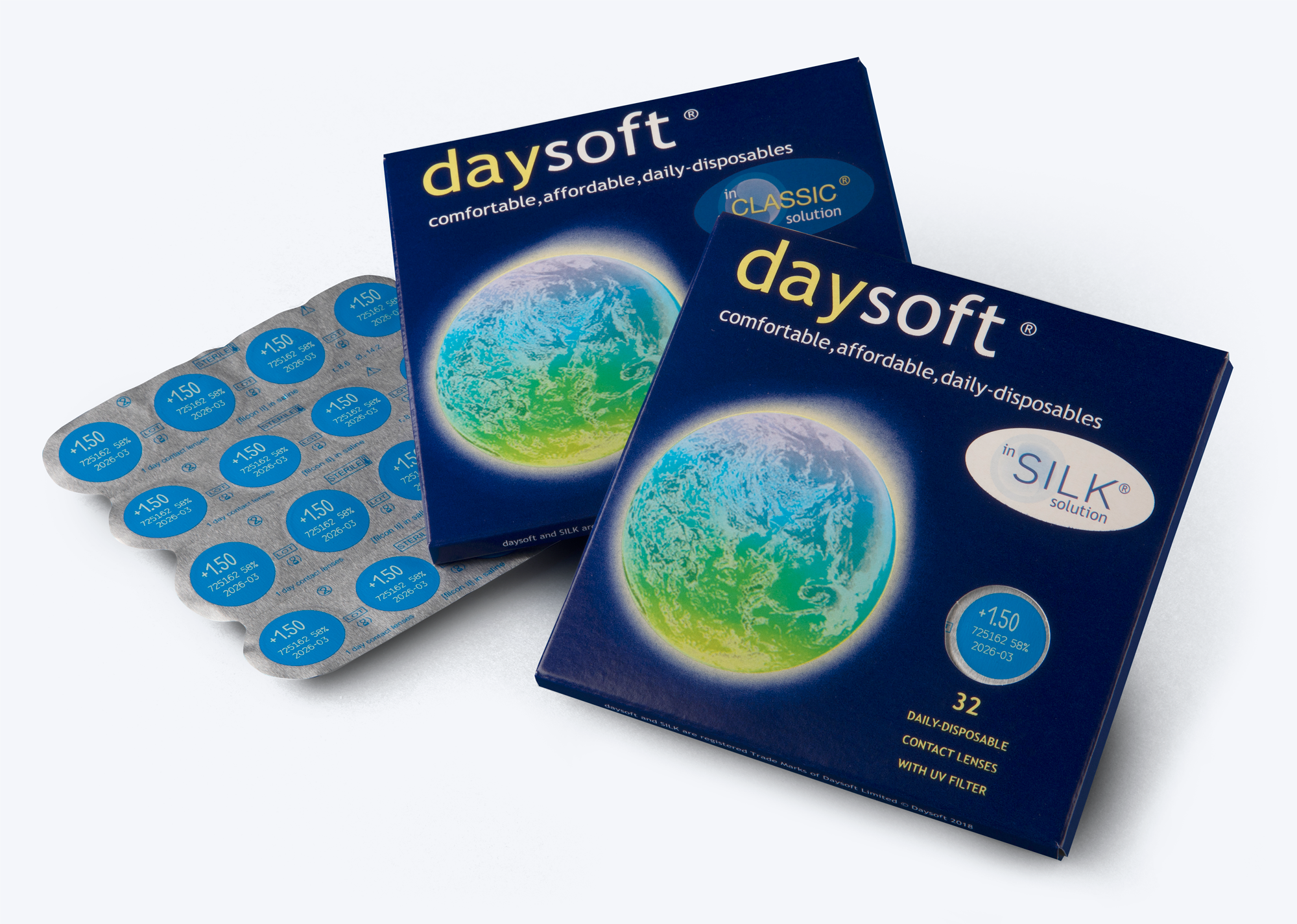Considering contact lenses? It’s completely normal to have questions and concerns before making the switch. As a glasses wearer, you’re probably familiar with common frustrations – constantly cleaning your lenses, misplacing your specs at the worst moments or dealing with fogged-up lenses. Making the switch to contact lenses is an exciting step that offers increased freedom and a fresh, new look.
While contact lenses bring clear benefits, it’s important to understand how they work and what to expect. By asking your optician the right questions, you’ll be prepared to make an informed decision and enjoy a smooth, comfortable transition. Here are some helpful insights to guide you through the process and boost your confidence in making the switch.
Are contact lenses and glasses prescriptions the same?
If you’re considering switching from glasses to contact lenses, one of the first things to discuss with your optician is whether your glasses prescription can be directly used for contact lenses. The short answer? Not always.
While both prescriptions correct your vision, contact lenses sit directly on the surface of your eye, which requires additional measurements – like the curvature of your cornea – for a proper fit. That’s why your optician will perform a separate contact lens fitting to ensure the lenses match your eyes perfectly.
By consulting with your optician, you can make the transition with confidence, knowing your vision and comfort are prioritised.
Can I wear normal contact lenses with astigmatism?
If you have astigmatism, it’s crucial to ask your optician about your options. Standard contact lenses may not provide the clarity you need, but the good news is that specially designed toric lenses are available to correct astigmatism.
Your optician will assess whether these are suitable for you and explain how they differ from regular lenses. They’ll also guide you through trying them out to ensure they feel comfortable and meet your vision needs.
What types of contact lenses are best for my lifestyle?
Contact lenses come in various types, from daily disposables to monthly lenses. As they sit directly on the surface of the eye, you can avoid distortion or reflections that people sometimes experience when wearing glasses. This is great for when playing sports or driving.
If you’re looking for the safest low-maintenance option, daily disposables like daysoft’s affordable range are a great choice. Simply wear a fresh pair each day and dispose of them responsibly after use – no cleaning routine required. They’re great for travelling, too.
Be honest with your optician about your routine and preferences so they can recommend the best option. You might also find this article helpful.
I’m unsure about wearing lenses all the time.
Contact lenses are now the most comfortable they have ever been, and most feel like you’re not wearing any at all! In fact, daysoft’s Soft-Edge technology means that, unlike the conventional contact lens shape with a bevelled edge, daysoft lenses have a flat, continuous edge. This allows your eyelids to glide smoothly over the lenses when wearing them. Check out why daysoft is the most comfy dailies brand in this blog.
Different types of contact lenses match how you might want to wear them, such as daily disposables that you wear once then dispose of them responsibly – perfect for when you don’t want to wear your glasses some of the time, like going to the gym or for that special night out.
I’m worried about putting my finger in my eye.
Feeling nervous about touching your eye is completely natural – after all, it’s something we’re taught to avoid from a young age. The idea of putting in contact lenses can seem intimidating at first, but rest assured, it’s a skill that becomes easier with practice.
Your optician will guide you through the process step by step, showing you how to put lenses in and take them out safely and comfortably. They’ll ensure you have plenty of practice during your fitting session, helping you build confidence until it feels like second nature. Still unsure? Here are five tips to get over the fear of inserting your contact lenses.
What if I lose one of my lenses in my eye?
This is a big fat myth! It might initially feel a bit different having a contact lens on, but it’s impossible to lose a lens around the back of your eye. Natural mechanisms, such as blinking and your tears, help to keep you comfortable with your contact lenses. We bust more common contact lenses myths in this article.
How do I keep my contact lenses clean and safe?
If you’re worried about hygiene and the risk of eye infections, don’t be – proper lens care is straightforward and essential for wearing contact lenses safely. Your optician will give you tips for inserting and removing them (we go through how to remove your contacts here). They’ll also explain how to prevent common issues like dry eyes, irritation or infections. And if the idea of lens care feels overwhelming, daily disposables offer a convenient, low-maintenance alternative.
By following a few simple hygiene practices, you can keep your eyes healthy and your vision clear:
- Always wash and thoroughly dry your hands before handling your contact lenses.
- Never share your lenses with anyone else.
- Avoid using tap water or any other water on your lenses.
- Don’t sleep in your lenses unless specifically advised by your optician.
With the right care and guidance, wearing contact lenses can become a safe and stress-free part of your routine.
What should I expect when wearing contact lenses for the first time?
Transitioning to contact lenses can take some getting used to. Ask your optician about what to expect during the adjustment period, including any initial discomfort or challenges. They’ll explain how to handle your lenses, give tips for overcoming common obstacles and let you know when to schedule follow-ups to ensure your lenses are working well for you.
Are there any health risks I should know about?
Contact lenses are safe when used correctly, but it’s wise to understand any risks. Your optician can explain how to avoid problems like infections and what to do if your eyes feel irritated or uncomfortable. They’ll also discuss how factors like screen time or allergies may affect your eyes and what solutions are available.
What if I decide to switch back to glasses?
If you choose to return to glasses after wearing contact lenses for a while, it’s possible to experience some temporary issues, like headaches or dizziness, as your eyes and brain adjust. This is particularly common if you’ve been wearing high-prescription contact lenses for an extended period.
Your brain may need a few days, or even weeks, to fully readjust to the different visual experience provided by glasses. With time, though, these sensations should subside as your body adapts to the change.
Making the switch
Whether you're curious about which type of lenses are best for you, how to put them in, take them out or care for them, your optician is the perfect resource for personalised advice.
If you’re ready to make the switch, consider daysoft’s daily disposables for the safest affordable and hassle-free start to your contact lens journey.


